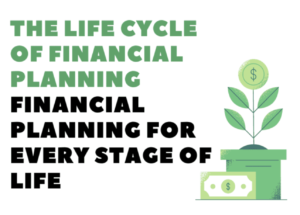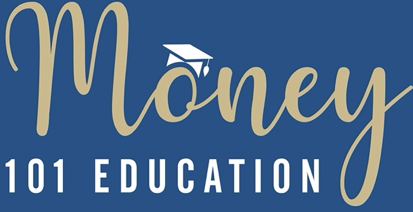
Money And Life Cycles Segment Curriculum
Five Classes focusing on the key financial steps to plan for life’s transitions, including How to Introduce Children to Money, College Savings Plans, Impact of Career Choices, and Relationships, Prenuptial Agreements, Divorce, Retirement, and Planning for Death – Wills, Estates and Trusts.
Class 1: EARLY YEARS INTRO – Talking to Young People about Money
- Think of it as a skill set, not a judgment of where you are.
- Discussion – What introduction to money did you have in childhood? How did it shape your adult viewpoint?
- Are people “better” because they appear “rich”? How we often judge a book by its cover.
- Why is financial education so important – getting comfortable talking about money
- BIRTH – establishing a social security number
- Savings Bonds – different types, and why they make good baby gifts
- Getting on the same page with your co-parent
- 529 College Savings Plans – what are they? and what are the benefits?
- Age 5-9 – setting up a bank account, establishing allowances, teaching the art of priorities. Visiting a Bank and about interest
- Age 11-13 Introducing to Budgeting and Planning for the longer horizon – Concept of Buy-Save-Gift.
- Age-14 -18 Understanding the engine is employment, Career Choices have Significant Financial Impact, Understanding Labor regulations including Salary vs Hourly Compensation, What is Overtime.
- HOMEWORK AFTER SESSION #1 relates to Budgeting/ Cash Forecasting
CLASS # 2 – COLLEGE YEARS – A Step Towards Independence
- The Perils of Borrowing (Credit Cards) and Understanding Minimum Required Payments and Compound Interest
- Understanding Credit Scores and the factors that will impact a Score
- Understand Student loans – Subsidized vs. Unsubsidized – what is forbearance
- What is Forbearance
- Balance – Should you have a Gap Year? What would you do with it?
- Getting your first job – Negotiations & employment benefits
- HOMEWORK AFTER SESSION #2 – Prepare a personal financial statement
CLASS # 3 ADULTHOOD – Building and Protecting Your Wealth
- Knowing Yourself and Knowing your Partner’s Attitude Towards Money
- Life Plans: Discussing Priorities and Establishing A Five-Year Plan
- Prenuptial agreements
- Finances (co-mingled, separate, or hybrid ) and
- How to Handle Gifts/Loans – Given or received from non-spousal Family
- What is decided in a divorce, and what is not (child support and custody, alimony, division of assets)
- Attorney Retainers
- Case Information Statement (CIS)
- Mediation
CLASS # 4 – PREPARATION FOR RETIREMENT – including Social Security, and Withdrawals from Retirement Accounts
- Budgeting for retirement years, consideration of changes in expenses, re-evaluation of housing costs, anticipating medical expenses
- Understanding Social Security benefits and the factors which should influence when you start collecting
- What is an IRA or 401k RMD = Required Minimum Distribution
- Difference between a Traditional and a ROTH retirement plan
- How are Inherited IRA’s different from a Retirement Plan you established for yourself
CLASS # 5 END OF LIFE CHALLENGES – Death and Taxes
- How to Organize your affairs in advance as a gift to your heirs.
- Who will handle your affairs?
- Which prevails for distributing assets of a 401K plan, your Will or the 401K Beneficiary form?
- What key items should be mentioned in a Will?
- What does an Executor do? Will your Executor be compensated?
- Do you need a Trust? What does a Trustee do?
- How to protect minor children or special needs beneficiaries.
- Will your heirs have to pay Estate Taxes (federal and state)? Inheritance Laws, Gifting restrictions
- Review of tax filing 706 form
- Change of 401K beneficiaries (required signoff when assets don’t go to spouse)
… and if there is time
INSURANCE
- Life insurance – Term vs. Whole Life/Universal.
